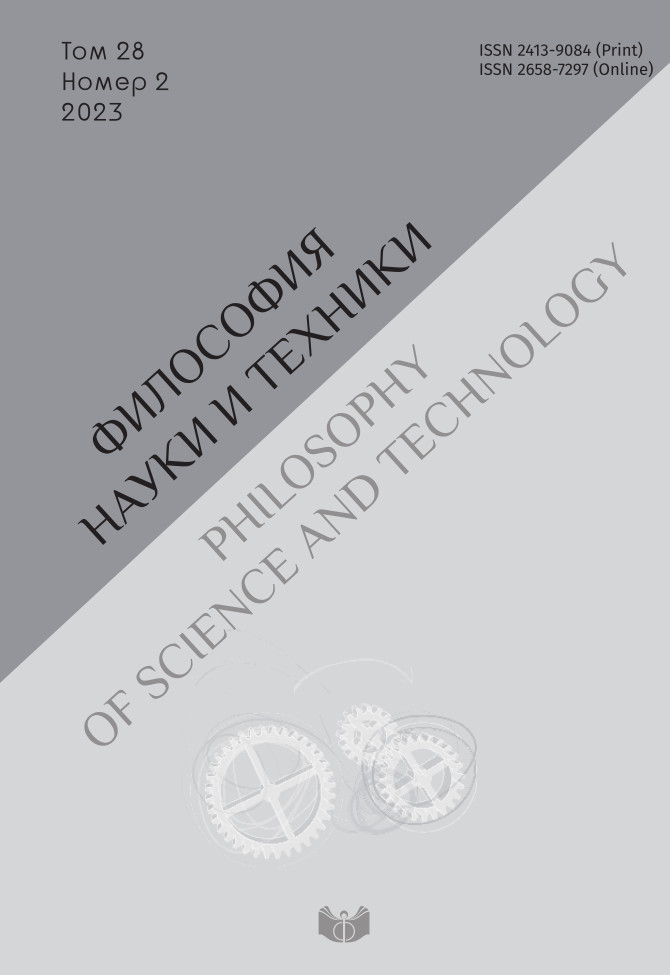Computational epistemology projects
DOI:
https://doi.org/10.21146/2413-9084-2023-28-2-88-101Keywords:
computer epistemology, multi-agent modeling, data analysis, machine learning, social epistemologyAbstract
The article is devoted to the currently actively developing philosophical research approach – computer epistemology. Computational epistemology is epistemological research, one of the key methodological components of which is the use of computer tools that allow one to obtain non-trivial conclusions. Despite the fact that the history of the use of computer technologies in the framework of philosophical research has been going on for more than twenty years, this area has begun to develop actively quite recently. This is connected with the widespread introduction of computer technologies into everyday life, and with the development of computer research tools proper, and with a change in certain attitudes within the philosophical community. It is assumed that computer epistemology, as part of computer philosophy, is part of the digital humanities, but it does not just use computer tools, but changes the very way of philosophical thinking. The article gives a definition of computer epistemology
in the context of computer philosophy in general, shows that there are several concepts related to the use of digital technologies in philosophical, in particular epistemological, research, considers the relevance of the very concept of computer epistemology. The article also proposes a classification of approaches in the field of computer epistemology, which can be extrapolated to computer philosophy in general. It is proposed to distinguish two types of approaches in the field of computer epistemology: the first is model and agent-oriented, the second is data-oriented. The article analyzes the difference between their epistemological and technical foundations, and also provides vivid examples of the application of these approaches in epistemological research. The point of view is considered, according to which computer modeling can become a key epistemological and philosophical method in general, arguments are given both “for” and “against” this statement. An assumption is also made about possible further scenarios for the development of computer epistemology. It is assumed that the foundation of intellectual experience by computer technologies will lead to a situation where computer epistemology will become one of the key areas of epistemological research.











